Whether you are a new EV owner or considering making the switch to an electric vehicle, understanding the dynamics of your car’s value over time is crucial. Our comprehensive EV depreciation guide unveils the ins and outs of keeping your electric car’s value retention as robust as possible.
Despite the trend that EVs depreciate an average of 49.1% after five years, we’ll delve into the why’s and how’s so you can devise strategies to retain EV value. With electric vehicles like the Tesla Model S and Chevrolet Bolt EV experiencing notable depreciation, it’s time to empower yourself with knowledge and keep your investment’s value strong. Join us as we navigate the nuances of this modern-day automotive challenge.
Key Takeaways
- Average five-year EV depreciation stands at 49.1%, with Tesla Model S and Chevrolet Bolt EV among the highest.
- Electric car value retention is affected by initial price incentives and potential battery replacement costs.
- Noteworthy exceptions exist, such as the Porsche 911, demonstrating exceptional value retention over time.
- Consumer appreciation for fuel efficiency and lesser depreciation in trucks and hybrids highlight a trend toward value-conscious choices.
- The data, covering over 1.1 million used cars, provides a vital resource for understanding the full scope of EV depreciation.
Understanding EV Depreciation
As electric vehicles (EVs) continue to grow in popularity, both consumers and industry experts are paying close attention to the critical issue of EV depreciation. Understanding the intricacies of how electric cars maintain or lose their value over time is pivotal for current owners and prospective buyers.
While historically EVs have faced steep depreciation curves, it’s important to investigate what drives this trend and how it compares to traditional gas vehicles in terms of value retention.
What Is EV Depreciation and Why Does It Matter?
Electric vehicle depreciation refers to the reduction in the market value of an EV over time. Simply put, like any other asset, EVs lose their worth as they age, but the rate at which they depreciate can be influenced by a myriad of factors. Understanding these factors is fundamental for optimizing the return on investment and predicting long-term costs associated with EV ownership.
The Truth About Electric Vehicle Depreciation Rates
Recent reports show a rather daunting figure: the average electric vehicle loses approximately 49.1% of its value after five years. This figure outpaces the overall average for automobiles, which stands at 38.8%. It’s crucial to shed light on individual cases within this broader statistic.
For instance, the Tesla Model S experienced the greatest hit in value, depreciating by 55.5%, while other notable models like the Chevrolet Bolt EV and Nissan Leaf also saw significant decreases. This phenomenon is often exacerbated by initial purchase incentives and concerns over battery life expectancy and replacement costs.
How EVs Compare to Gas Vehicles in Value Retention
When it comes to EV vs. gas vehicle value retention, it’s not all bleak for electric models. Some brands have carved out niches where their vehicles depreciate at a slower rate compared to their gas-powered counterparts.
Sports cars including the Porsche 911 achieve remarkable value retention over time, and some hybrids are also making strides in holding their worth. This underscores a shift in consumer sentiment, where factors such as fuel efficiency and environmental impact are becoming increasingly significant in the residual value equation.

Collectively, insights into electric car depreciation rates guide us to a nuanced appreciation of the EV market’s landscape. Owners and potential purchasers must weigh all variables impacting EV resale value, from technological advancements and market trends to individual model performance. With a clearer grasp on these dimensions, stakeholders can navigate the electric automobile market more strategically and with confidence in their long-term vehicular investments.
Factors Influencing Electric Car Depreciation
When assessing the longevity of an electric vehicle’s value, several variables play a pivotal role. Among these, mileage and the age of the EV notably impact its resale value, while the state of the battery is integral to its overall worth. Understanding these factors is crucial for anyone looking to either purchase or sell an electric car in today’s market.
The Impact of Mileage and Age on Resale Value
Mileage and age are two primary indicators of a vehicle’s use and wear, contributing significantly to its depreciation. A higher mileage often suggests more extensive use, potentially leading to quicker degradation of various car components.
Age, too, stands as a natural depreciating factor, as newer models tend to offer the latest features and technological advancements that older cars lack. Consequently, a three-year-old electric vehicle with high mileage could witness a steeper drop in its resale value than its newer, lower-mileage counterpart.
Battery Health: A Key Component in Valuation
Battery health is essential when determining an electric car’s value. As a chief component that differentiates EVs from conventional vehicles, the battery condition can greatly affect a car’s functionality and range. Battery degradation can occur due to several factors, such as overcharging and reliance on rapid chargers, which can thereby influence the extent of EV depreciation.
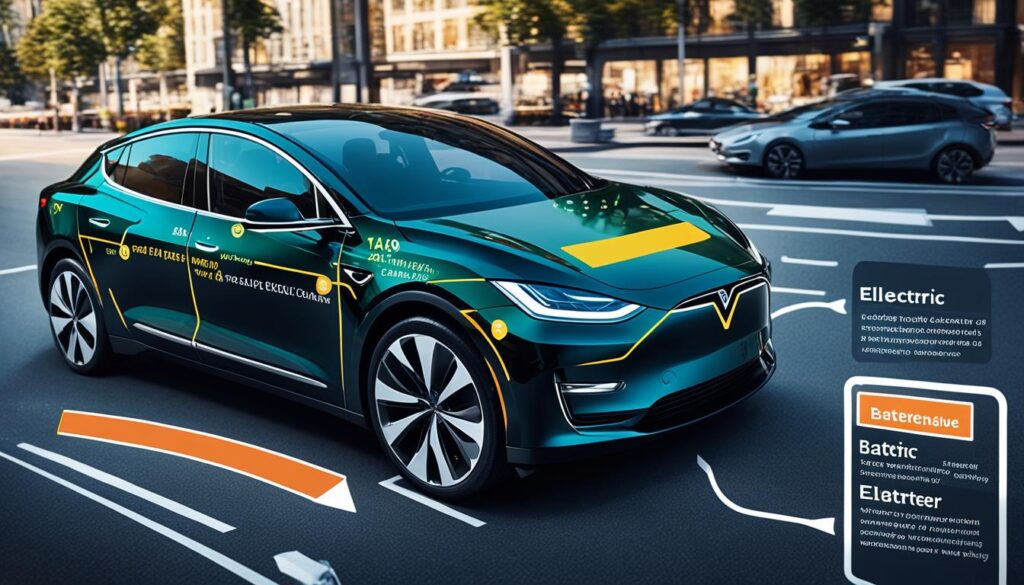
A table presenting the relationship between EV resale value and battery health, controlling for mileage and age, provides a deeper insight into the electric vehicle’s market value.
| EV Model | Mileage | Age | Battery Condition | Resale Value (% of Original) |
|---|---|---|---|---|
| Tesla Model S | 50,000 miles | 5 years | Excellent | 60% |
| Chevrolet Bolt EV | 30,000 miles | 3 years | Good | 55% |
| Nissan Leaf | 70,000 miles | 5 years | Average | 45% |
This illustrative dataset underscores the impact of battery health on the EV resale value. Potential owners should be mindful of these key attributes, which underscore how vital proper battery care and low mileage are for maximizing an electric vehicle’s market longevity.
Strategies to Minimize EV Value Depreciation
As the market for electric vehicles (EVs) evolves, maintaining high resale values is increasingly important for owners. While electric cars are known for their innovation and sustainability, they are also known for significant depreciation rates.
One of the most impactful ways of reducing EV depreciation is through meticulous maintenance and management of the battery’s health. Batteries are the life force of EVs and their condition is heavily scrutinized in the pre-owned market.
To minimize electric vehicle value loss, it is crucial to avoid exposing the vehicle to extreme temperatures, which can cause the battery to degrade prematurely. Additionally, avoiding overcharging and utilizing rapid chargers sparingly can help maintain the battery’s optimal function and longevity.
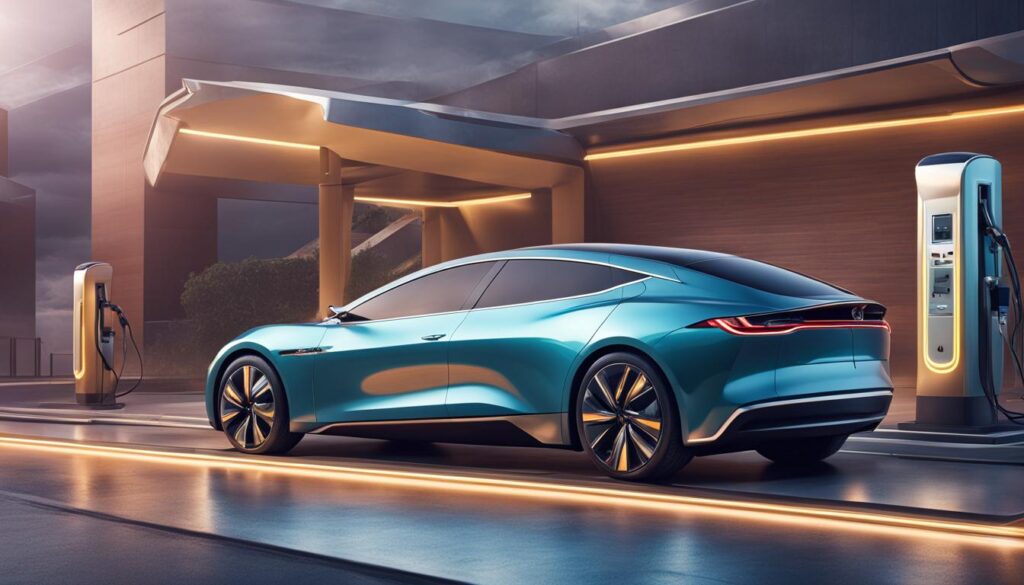
The interior and exterior condition of your EV also play a vital role in its value retention. Ensuring that your electric vehicle is regularly serviced and keeping up with the manufacturer’s scheduled maintenance can go a long way in preserving its value. A comprehensive service history, which documents all maintenance work and repairs, adds to your vehicle’s credibility and desirability in the resale market.
Making use of these strategies for EV value retention is beneficial not just for when it’s time to sell but also forms part of responsible vehicle ownership. By taking proactive measures, you not only maximize your investment but also contribute to the overall longevity and efficiency of the electric vehicle ecosystem. Here’s a quick list of tips to help mitigate depreciation:
- Regular maintenance checks and following the manufacturer’s service intervals.
- Mindful charging practices to prevent battery degradation.
- Storage of the vehicle in climate-controlled environments.
- Maintaining aesthetic appeal by keeping the car’s interior and exterior condition pristine.
- Documenting all repairs and maintenance jobs done on the vehicle.
By adhering to these guidelines, you can ensure that your EV retains as much value as possible, making it a more attractive option for future buyers or trade-ins. Remember, when it comes to EV ownership, every preventive action taken today can lead to substantial cost savings tomorrow.
Top Performing EVs in Depreciation
When it comes to safeguarding your automotive investment, not all electric vehicles are equal. Discerning car buyers pay close attention to electric vehicle brands with the best value retention and models that stand out for their least EV depreciation rates. It turns out, some electric vehicles defy the average depreciation rates and emerge as superior choices for long-term value retention.
Which EV Brands Retain Their Value Best?
Brand reputation and consumer loyalty are monumental when it comes to an EVs ability to hold its value. Premium brands like Tesla and Porsche are front-runners in the EV market, boasting some of the best EV depreciation rates. These brands deliver on their promise of quality and longevity, traits highly coveted by resale buyers.
Models with the Least Depreciation Over Time
In the competition for models with least EV depreciation, certain names consistently hit the mark. From luxury powerhouses to family-friendly rides, here’s a lineup of electric vehicles fending off rapid depreciation:
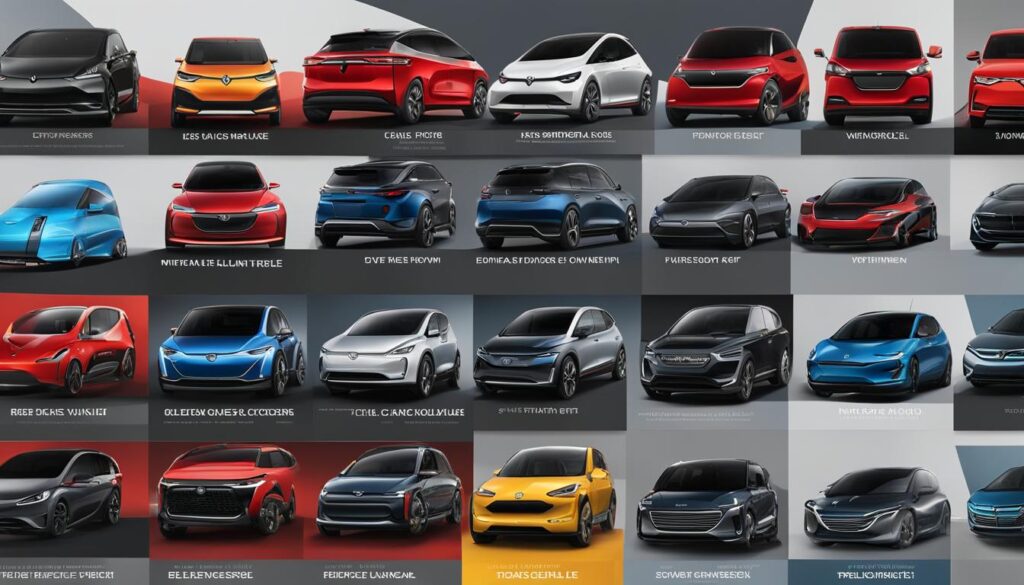
| EV Model | Brand | Avg. 3-Year Depreciation Rate | Notable Features |
|---|---|---|---|
| Tesla Model X | Tesla | 43% | Premium performance, cutting-edge technology |
| Hyundai Ioniq Electric | Hyundai | 48% | Affordable, family-friendly EV |
| Porsche Taycan | Porsche | 37% | Luxury features, sports car performance |
| BMW i3 | BMW | 50% | Innovative design, sustainable materials |
| Tesla Model 3 | Tesla | 40% | Mass-market appeal, high-tech interior |
| Polestar 2 | Polestar | 42% | Exclusive design, all-electric performance |
It’s evident that electric vehicles are not monolithic in their depreciation journeys. Models like Tesla Model 3 and Hyundai Ioniq illustrate that even within the realm of affordability, EVs can show impressive value retention.
High-performance and luxury electric vehicles, such as the Porsche Taycan, also demonstrate that desirability doesn’t dwindle with time. Ensuring your electric vehicle holds its worth is less about chance and more about choosing models known for their best EV depreciation rates.
Analysis of EV Depreciation Trends
The electrification of the automotive industry is not only shaping how we drive but also how car values depreciate over time. With a surge in adoption rates and advancements in technology, understanding the EV depreciation trends has become increasingly important for consumers and stakeholders within the used electric vehicle market. An EV depreciation analysis provides key insights into these trends, offering a roadmap for potential buyers and sellers in this rapidly evolving landscape.
Current Market Analysis of Used Electric Vehicles
In the realm of used electric vehicles, the depreciation narrative seems to be writing new chapters. Early predictions that EVs would face a cliff-like depreciation have been challenged by recent market analyses.
Brands like Hyundai, Porsche, and Tesla are turning the tables, with models such as the Hyundai Ioniq and Tesla Model 3 exhibiting far less depreciation than expected—retaining close to half their value after three years. However, it’s not uniform across the board; the rate of EV depreciation significantly fluctuates based on factors such as brand reputation, technological updates, and battery longevity.
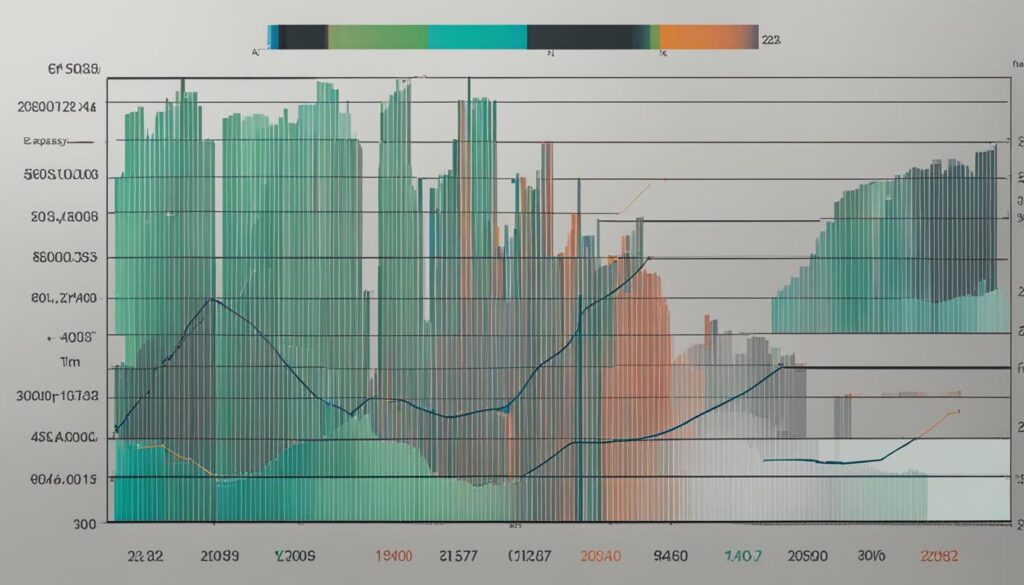
Let us delve into the numbers that are shaping the current used EV landscape:
| EV Model | Brand | Average Depreciation (5 years) | Market Highlights |
|---|---|---|---|
| Tesla Model S | Tesla | 55.5% | Despite high depreciation, remains popular due to brand prestige and tech features |
| Chevrolet Bolt EV | Chevrolet | 51.1% | Appreciation for range and affordability |
| Nissan Leaf | Nissan | 50.8% | Widely recognized as a pioneer in the EV space |
Predictions on EV Resale Values
The trajectory for EV resale value predictions is set on an optimistic path. As the charging infrastructure expands and societal inclination towards sustainable living intensifies, electric vehicles are expected to hold a sturdier resale value.
The increasing presence of EVs in the market could potentially lead to an improved perception of battery reliability and hence, stabilize depreciation rates. Current trends and future outlooks suggest that the gap in EV resale values between electric and gas vehicles is poised to close, with some EVs anticipated to outperform their gasoline counterparts in the coming years.
Maintaining a watchful eye on EV depreciation analysis is key for anyone invested in the electric vehicle market. Variables such as technological improvements, public sentiment towards electric mobility, and economic factors will all play their parts in dictating the used electric vehicle market analysis moving forward. With each advancement and shift in trends, the landscape for EV resale values is set for further evolution.
Maintaining Your EV to Preserve Value
In the swiftly evolving landscape of electric vehicles (EVs), preserving your car’s value is as important as maintaining its performance. A meticulous approach to maintaining EV value is not only essential for ensuring reliability and efficiency but also for enhancing its appeal at resale.
From battery upkeep to smart preservation of aesthetics, engaging in essential EV maintenance is beneficial for EV owners wishing to secure their vehicle’s longevity and resale prowess.
Essential Maintenance Tips for EV Owners
Regular monitoring and care are keys in holding back the depreciation of your EV. To embark on this, begin by adhering to the manufacturer’s recommended service schedule. This can include routine checks of the battery, electrical systems, brakes, and tires, which are crucial components of your EV.
Additionally, keeping your vehicle clean and addressing minor damages immediately can go a long way in maintaining EV value. Finally, consider the impact of driving habits, such as avoiding constant rapid acceleration and deceleration, which can preserve the integrity of the battery and other critical EV parts.
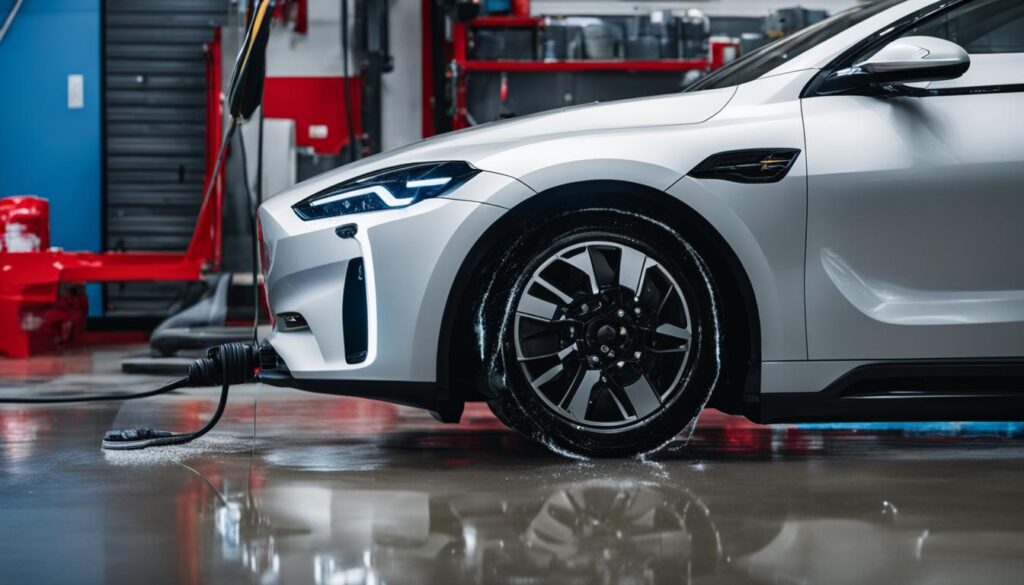
The Role of Warranty and Service History in Resale Value
One cannot overlook the tangible benefits of a well-documented service history and a valid electric vehicle warranty when it comes to EV resale value. A detailed service record vouches for the vehicle’s well-maintained state, which is attractive to potential buyers seeking assurance of a good purchase.
Additionally, an intact warranty often equates to less risk for future owners, as it may cover significant repairs or replacements that might be required down the line. These factors combined position your EV as a desirable asset in the pre-owned market, potentially commanding a higher resale value.
| EV Maintenance Aspect | Impact on Resale Value | Suggested Action |
|---|---|---|
| Comprehensive Service History | Increases Buyer Confidence | Retain all service records and receipts |
| Battery Condition | Directly Affects Functionality and Range | Follow manufacturer’s guidelines on battery care |
| Exterior and Interior Condition | Reflects Care and Possible Wear and Tear | Regular cleaning and immediate repair of damages |
| Active Warranty | Offers Peace of Mind to Buyers | Ensure transferability and clarity of warranty terms |
By integrating these practices into your regular EV maintenance routine, you’re not just preserving the vehicle’s operational efficacy; you’re also strategically slowing down its depreciation. Given the typical battery lifespan of 10-20 years, your commitment to comprehensive care and due diligence can play a vital role in maximizing the resale value of your EV.
EV Depreciation
As the automotive landscape shifts towards electric vehicles (EVs), prospective buyers and current owners are keenly interested in the depreciation rates of EVs compared to their gas-powered counterparts. The long-term financial implications of owning an electric vehicle largely hinge on understanding these rates and recognizing the external factors that influence them. In the subsequent sections, we explore the intricacies of how EVs retain their value over time.
An In-Depth Look at EV Depreciation Rates
Recent statistics reveal a promising trend for electric car owners: the average EV is projected to maintain about 48% of its initial cost after three years. This indicates a slower depreciation rate than most petrol and diesel cars, suggesting that the electric variants remain a competitive choice for those looking to preserve value.
Digging further into in-depth EV depreciation analysis, it becomes apparent that various elements, from battery longevity to the vehicle’s make and model, play critical roles in determining an EV’s value retention.
Comparing Depreciation: EVs vs. Conventional Vehicles
When delving into an EV depreciation comparison, it stands out that certain EV models, particularly luxury ones, depreciate at a lesser rate than typical gasoline vehicles. Brands that have established trust and shown resilience in the realm of electric mobility, such as Tesla and Porsche, tend to command higher resale values.
A critical aspect influencing this is the battery life—an EV’s battery not only powers the vehicle but also serves as a metric for long-term value. Intuitively, consumers are placing sizeable emphasis on the sustainability and efficiency of EVs, leading to a conscious shift that supports the case for electric versus conventional vehicle depreciation.
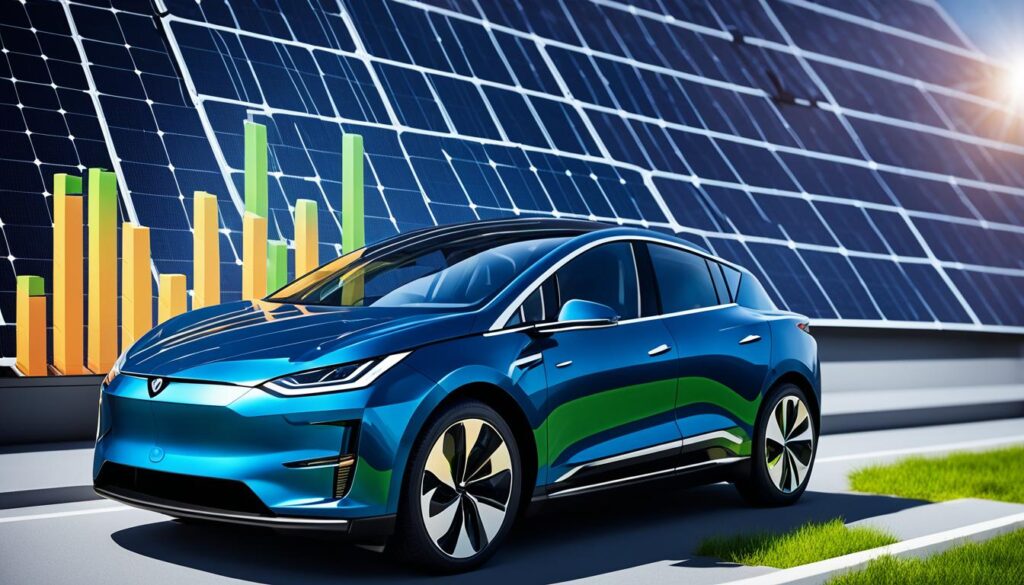
To provide a clearer picture of how electric cars stack up against their gasoline counterparts, the following table compares notable EV models and their average depreciation rates over a five-year period against similarly classed conventional vehicles:
| Vehicle Type | EV Model | Conventional Vehicle | EV 5-Year Avg. Depreciation | Conventional 5-Year Avg. Depreciation |
|---|---|---|---|---|
| Luxury Sedan | Tesla Model S | BMW 7 Series | 55.5% | 64.5% |
| Compact | Chevrolet Bolt EV | Honda Civic | 51.1% | 9.3% |
| Hatchback | Nissan Leaf | Volkswagen Golf | 50.8% | 49% |
This comparative analysis showcases the diversity in depreciation patterns across different vehicle classes, reinforcing the significance of brand image and vehicle functionality on value retention.
Optimal Timing and Practices for Selling Your EV
Deciding when to sell your electric vehicle (EV) is a strategic move that could influence the financial return you receive. The depreciation of an EV doesn’t follow a strictly linear path, which means knowing when to sell EV for maximum value requires an understanding of both market conditions and your vehicle’s lifecycle. Selling an EV at the right time can significantly mitigate loss, ensuring you maximize your investment in the burgeoning pre-owned EV marketplace.
Understanding When to Sell for Maximum Value
When considering selling your electric vehicle, timing plays a crucial role. While the value of EVs, as with any vehicle, generally depreciates over time, specific points can be considered to slow this inevitable decline. A fundamental part of this equation is battery life. With most EV batteries guaranteed to last between 15-20 years, selling your vehicle while the battery health is still robust can secure you a favorable position. Beyond the battery’s state, it’s astute to survey the market for new model releases and significant updates from your brand or its competitors. A proactive approach aligns the selling electric vehicle timing with market peaks and before major anticipated depreciation milestones occur.
Navigating the Pre-Owned EV Marketplace
Once you’ve determined the best window to sell, the next step is effectively navigating the pre-owned EV marketplace. Maintaining your EV in its original condition, especially in standard color hues and without major modifications, can strengthen its appeal to potential buyers and dealers. Staying abreast of market trends can also inform your strategy, as it provides clues to when demand for your particular model may be rising. As an EV owner, acknowledging that your vehicle’s condition, alongside its brand and model, can sway your success in the pre-owned arena is paramount. Implementing these insights and practices will guide you in pre-owned EV marketplace navigation and potentially steer you towards a transaction that preserves as much value as possible.
FAQ
What Is EV Depreciation and Why Does It Matter?
EV depreciation refers to the loss of value an electric vehicle experiences over time. This is an important financial consideration for EV owners, as it affects the resale value of their cars and their overall cost of ownership.
How Do Electric Vehicle Depreciation Rates Compare to Gas Vehicles?
Electric vehicles generally depreciate more rapidly than gas vehicles due to factors like technology advancements, battery life concerns, and original purchase incentives. However, some EVs hold value better than others, especially models from established brands with strong track records.
What Factors Affect the Resale Value of Electric Cars?
Factors that influence EV resale value include mileage, age, battery condition, interior and exterior condition, service history, and the type of electric vehicle. Additionally, perceived reliability and the costs associated with battery replacements can also play a role.
How Can I Reduce EV Depreciation and Retain My Car’s Value?
To minimize EV depreciation, maintain regular service checks, manage battery health, avoid extreme temperatures, and refrain from overcharging. Keeping the vehicle in good physical condition, both inside and out, and maintaining a comprehensive service history can also help retain its value.
Which Electric Vehicle Brands Retain Their Value Best?
Brands such as Tesla and Porsche, known for their strong brand appeal and innovation, typically showcase higher resale values. Their vehicles are often sought-after in the used market, which helps maintain their value over time.
Which Electric Vehicle Models Experience the Least Depreciation Over Time?
Models like Tesla Model X, Hyundai Ioniq, Porsche Taycan, BMW i3, Tesla Model 3, and Polestar 2 have shown to depreciate less than average due to factors such as brand desirability, better battery longevity, and competitive pricing.
How Is the Current Market for Used Electric Vehicles?
The used electric vehicle market is expanding, with a growing interest in EVs due to enhanced performance and an increased network of charging stations. Demand for certain models remains high, supporting stronger resale values for electric cars.
What Are the Predictions for Future EV Resale Values?
As electric vehicles become more commonplace and technology continues to advance, it is predicted that EV depreciation rates may improve and possibly outperform their conventional vehicle counterparts in retaining resale value.
What Essential Maintenance Tips Should EV Owners Follow to Preserve Value?
Essential maintenance includes regular service checks, diligent battery care, maintaining a clean aesthetic for exterior and interior, and keeping a detailed service history. It’s also important to adhere to the recommended charging practices to prolong battery life.
How Does Warranty and Service History Contribute to an EV’s Resale Value?
A current warranty can provide reassurance of the vehicle’s reliability, potentially making it more attractive to buyers. Furthermore, a comprehensive service history documenting regular maintenance indicates responsible ownership, adding to the car’s perceived value.
What Are the Best Practices for Selling an EV to Maximize Its Resale Value?
Selling an EV at a time when it has most of its battery life and updated features can maximize its value. Keeping the car in its original condition with no significant modifications and in a popular color can also impact its attractiveness to prospective buyers.
When Is the Best Time to Sell My Electric Car?
The best time to sell your electric car is generally before it hits major degradation milestones, such as significant battery wear or just before the release of updated models that might overshadow older versions. Monitoring market trends can guide the optimal timing for a sale.
How Can I Navigate the Pre-Owned EV Marketplace When Selling My Vehicle?
Become familiar with the current demand for EV models similar to yours, price your vehicle competitively, and highlight its well-maintained condition and any remaining warranty. Transparency about the vehicle’s history and battery health will also be key in successfully navigating the pre-owned EV market.
